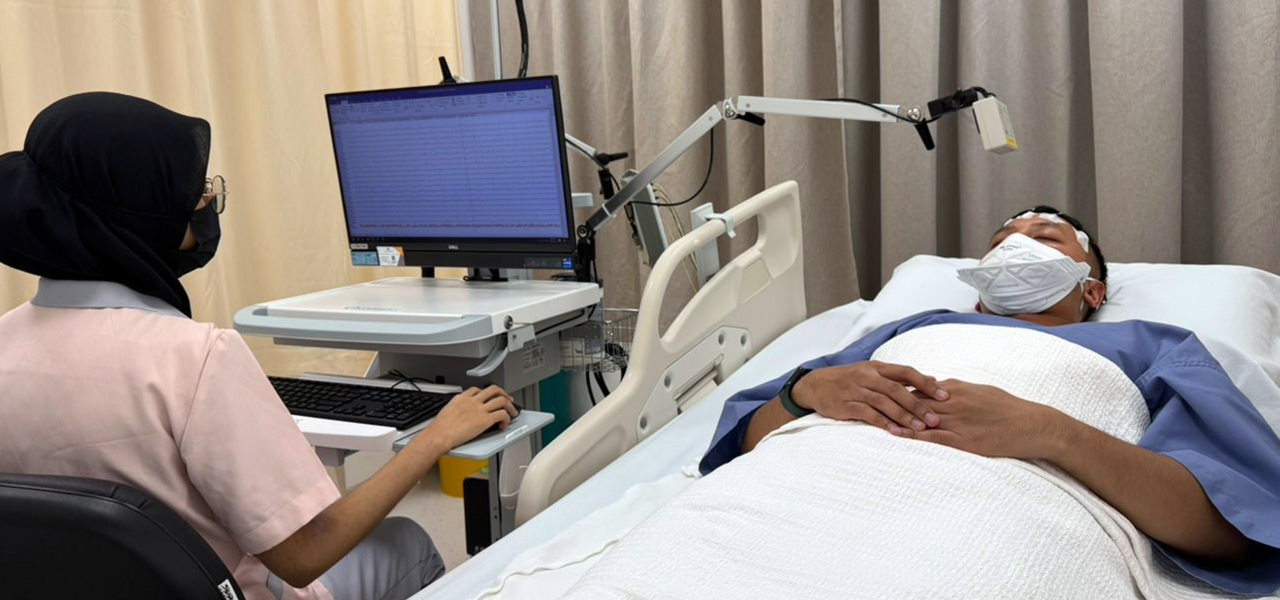
An electroencephalogram (EEG) is a diagnostic test that detects electrical activity in the brain, providing the doctor with important information about its health and function. Small electrodes record the brain’s electrical activity from the surface of the scalp, and the data is displayed as waveforms that are stored digitally on a computer for a neurologist to review and interpret.
An EEG can be very important for detecting epilepsy and seizure disorders, as well as encephalopathies (build up of poisons in the body that cause brain complications) such as encephalitis (inflammation of brain tissue) or meningitis. It can also be useful for treating patients who experience episodes of unconsciousness, altered mental states, sleep deprivation, dementia, confusion or memory loss. Certain brain surgeries may also require an EEG.
Services & Procedures
The EEG is a painless and harmless diagnostic test and there are no side effects. EEG electrodes are attached to patient’s scalp with a special paste; preparation will take approximately 30-45 minutes. Patient will be instructed to remain relaxed, quiet, and still throughout the procedure. Patient will need to open and close the eyes during the waking EEG recording, and may even be asked to breathe rapidly or hyperventilate for several minutes. Sometimes, intermittent photic stimulation (IPS) also been done to induce the brain wave abnormality.
Sleep is desirable and provides additional information to aid in the diagnoses. Sometimes it may be necessary to record the EEG during sleep, and a mild sedative may be prescribed as abnormalities associated with seizure disorders are more likely to appear in sleep.
The total EEG duration is approximately one and a half to two and a half hours long. Electrodes are easily removed with water and cleaned from the hair. The EEG data will then be sent to a neurologist for analysis and interpretation.
All patients should arrive with clean, dry hair and scalp. Patient should refrain from using hair products such as hairspray, gel, oil or mousse before the test. There is no need to stop using medications as normally would, unless patient is informed to do so. Patients who suffer from epilepsy or seizure should abstain from caffeine, and reduce the hours of sleep the night before. Infants and toddlers should be accompanied by a parent who can help provide reassurance. As sedation may be necessary, please avoid feeding the child one hour before the test to prevent possible vomiting.






